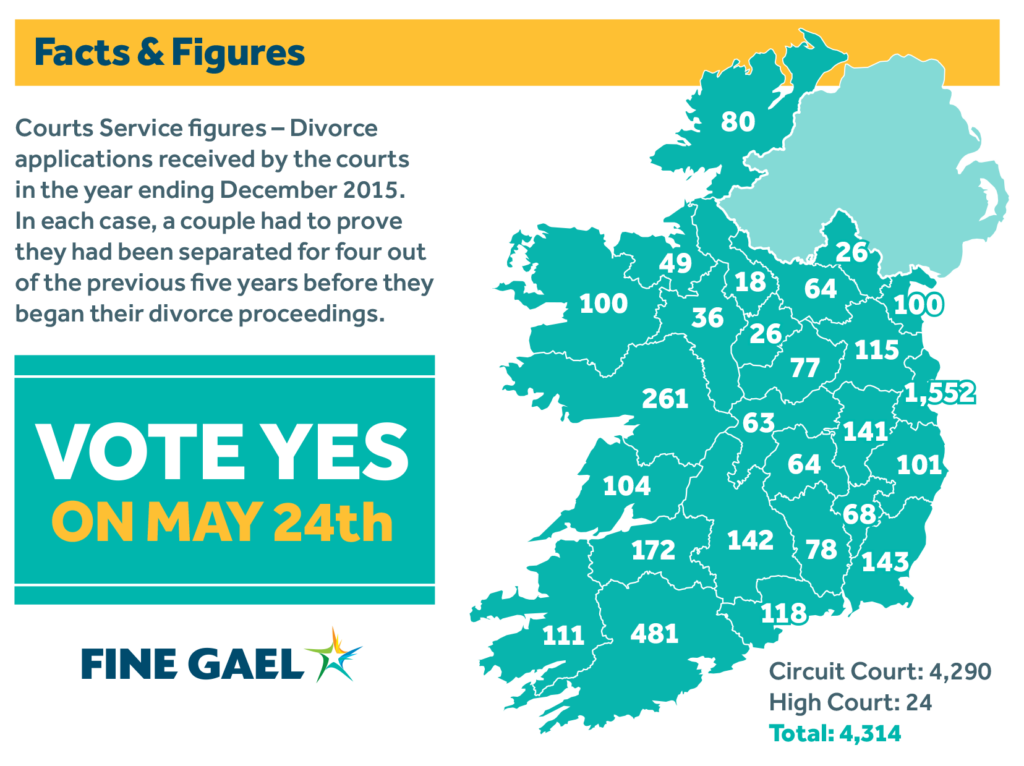
What are we being asked to vote for in the referendum on May 24th?
- We are being asked to amend Article 41.3.2° to remove the constitutional requirement that couples whose marriages are recognised by a Court to have broken down completely, be separated for four years out of the last five before beginning divorce proceedings. Instead the Oireachtas will introduce a law reducing that required separation period to two years out of the last three.
- We are being asked to amend Article 41.3.3° so that there is a clear constitutional basis for the Oireachtas to legislate to introduce greater consistency in recognising divorces granted by Civil Courts in countries inside and outside the EU.
What will happen if a majority of people vote YES?
The Oireachtas will pass a new law to amend the Family Law (Divorce) Act 1996. This will mean that spouses applying for a divorce will need to prove to a Court that they have been separated for two years out of the last three (rather than four years out of the last five). The new draft law – the Family Law (Divorce) (Amendment) Bill 2019 – has been published on www.justice.ie both the Government and the Opposition have agreed to this change.
The Minister for Justice and Equality will introduce a legal change to give greater consistency to the law on recognition of foreign divorces granted by Courts within and outside the European Union.
What will happen if a majority of people vote NO?
The Constitution will remain the same. Spouses will continue to have to prove to a Court that they have lived apart for four years out of the preceding five before they can begin divorce proceedings, which can take up to a further year.
They will continue to be caught in legal limbo, suffering emotional distress, for a prolonged period of time.
They will continue to accrue legal expenses if they try to regularise their affairs through a separation agreement or judicial separation while waiting to qualify for divorce.
The law governing recognition of foreign divorces will continue to be deeply complex and governed by a constitutional provision that dates back to 1937 – a time when the Constitution banned the right to divorce.
